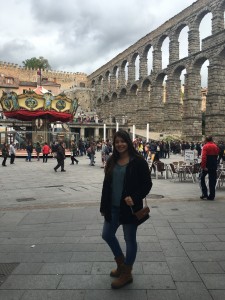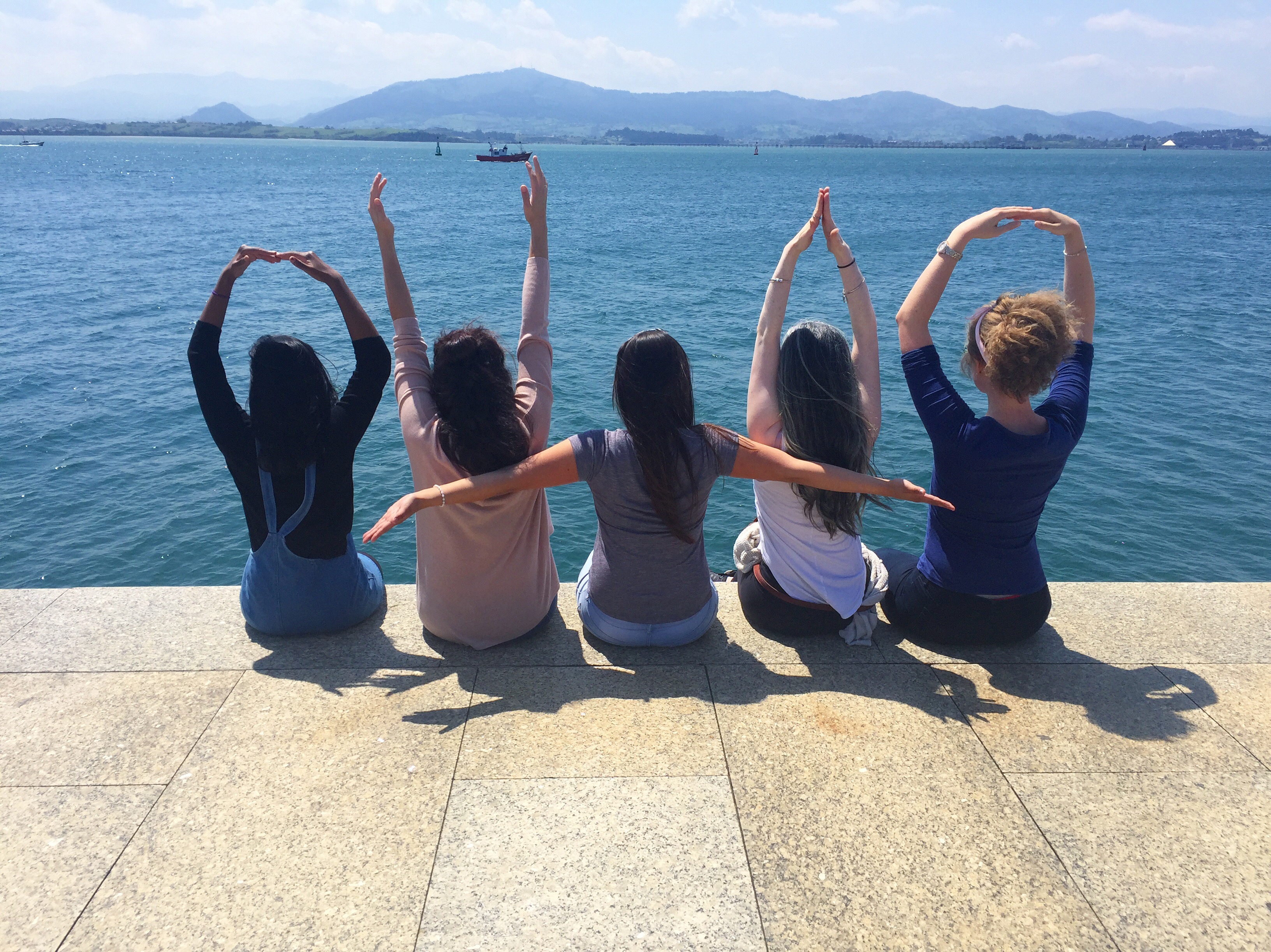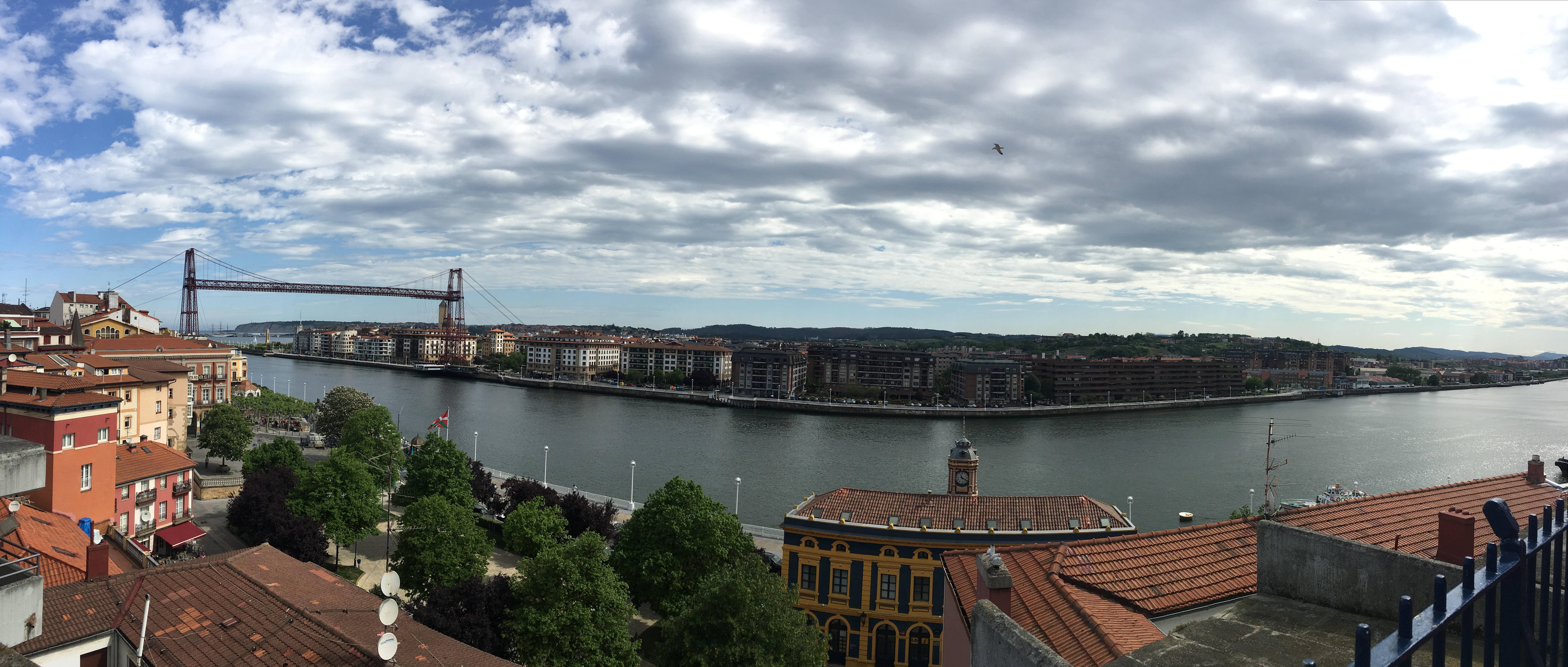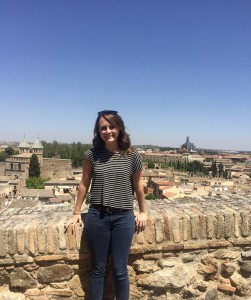The Spain Global May program increased my knowledge of Spanish culture as well as strengthened my understanding of my Spanish heritage. Through the program, I learned how Spain’s location plays a key role in creating this multicultural country. Additionally, we had the opportunity to discuss and learn about immigration in Spain in comparison to immigration in the United States. The program helped me grow on a professional and personal level by pushing me to leave my comfort zone and try new things like zip line across the Tagus River in Toledo, after a day of exploring and learning about the Muslim, Christian, and Jewish remains in the city. I am forever grateful for STEP, OSU, and my parents for supporting me throughout this journey.
I cannot believe how much I learned about myself within those two months abroad. Without a doubt, the most important thing my host country taught me was how to accept and appreciate everyone’s individuality. The Iberian Peninsula has become a crossroad for migration. Throughout the years, numbers of immigrants have stopped and settled in Spain even though their intended final destination was elsewhere. From an early start, the idea and importance of living in a “melting pot” is emphasized inside and outside the classroom. This “melting pot” phrase is different than multiculturalism; what some might refer to as a “salad bowl.” In a melting pot, people from different racial and ethnic groups assimilate into one larger culture. While in a multiculturalist environment, people from all different backgrounds learn to live and interact with one another. In Madrid, people understand when they step outside their front door they will be accepted, appreciated, and respected by their peers despite their differences.

Admiring the Roman remains in Segovia, Spain.
In the United States, there is still this idea of the American Exceptionlism and the American Creed. Growing up with English as my second language in the United States was quite challenging. My accent was always present giving away that I was different. On top of that it almost seemed frowned upon on to say I was Salvadorian-American. It continues to be difficult to feel proud of both cultures and sometimes it feels like I have to choose one or the other. However, this class made me realized how things in the United States are changing into a multiculturalism perspective. Today, people are encouraged to explore different cultural traditions as well as to promote their own. Students who speak more than one language are now called Dual Language Learners instead of degrading terms that have been utilized in the past. Schools all over the country celebrate Hispanic and Asian American/Pacific Islander heritage week. Schools have even adopted a new curriculum that provides exposure to other languages, customs, and traditions. The Spain Global May program helped me understand that being different is a good thing, not a bad thing. It has given me the fuel to use my voice to advocate for those who do not have one.
This program inspired me to spend the next couple months volunteering near home at safe havens for immigrants and advocating for immigration reform. The United States and Spain are currently facing similar immigration waves and challenges. Throughout this course, we learn about the irony of the American dream and see how it relates to those who migrate to Spain. The road to citizenship is not quick or easy and it comes with many struggles. Fortunately, there are centers around Spain dedicated and invested to helping immigrants feel welcomed and create a second home away from home. We learned about organizations such as Karibu and Caritas Spain that provide training of the language and culture, housing, legal advice, psychological assistance, and even employment. After learning about the programs and activities carried out by the organizations and interacting with program coordinators; I was inspired to set out and make a difference. There are many misconceptions about immigrants and immigration that need to be addressed.

Beautiful scenery in Toledo, Spain.
One of the main challenges immigrants face is the language barrier. Assimilation or Latinos in Spain is obviously different because they know the native tongue but they still experience harassment. In one of our events, we learned how educators would belittle children who spoke Spanish with Colombian and Peruvian accents. The USA is working towards creating classrooms that are inclusive and welcoming for bilingual students to eliminate the racism and bullying they experienced in school. As a future educator and the daughter of two immigrants, I am motivated to learn more and be part of this movement.
Spain, when compared to the United States, has done a better job at integrating immigrants. Unlike the USA and France, Spain did not build communities and ghettos for immigrants. Organizations like Karibu and the Austrian center we visited, work really hard to successfully integrate migrants to the Spanish/Madrid culture while helping them keep their customs and traditions alive. Part of successful integration is providing migrants with psychological support. Many of them suffer from depression as they are homesick and feel alone. I have seen the psychological toll immigration has had on my parents; there is always that feeling of being in two places so it’s challenging for migrants to have that sense of belonging in an unknown land. After living and studying in Spain, I am determined to use what I have learned to help alter the way immigrants integrate into American Culture.
Immigration is a difficult subject to understand. I have been surrounded by it my entire life and everyday I continue to learn more and more about it. Centro Austriano in Madrid among Karibu and Caritas Spain serve as safe havens for immigrants. Unfortunately, many Spaniards do not appreciate the organizations. They receive a lot of backlash for helping foreigners and not the Spanish people, which is very similar to the United States where many argue that the government should help our veterans and those homeless instead of immigrants. I want to engage people in this discussion and as one of our guest speakers suggested, work towards changing people’s heart and then what’s in their mind. This program has given me the courage to share my parents’ story and teach locals in the United States that foreigners are not criminals, they do not steal jobs, and they do not remove culture.

Front row seats for the Atlético Madrid vs. Celta Vigo soccer match at the Vincente Calderón Stadium in Madrid, Spain.
I am a third year student at The Ohio State University majoring in Special Education. I am specializing in Early Childhood Intervention with minors in Dance and Spanish. My experience as a first-generation, out-of-state woman of color has inspired me to dedicate my career to working towards education reform and promoting diversity and inclusion in the classrooms. Studying abroad has made me a better educator by increasing my communication in Spanish and cultural awareness. One of my professional goals includes teaching abroad in Latin America and Africa alongside children with limited resources. The opportunity to study abroad has not only helped me fulfill my childhood dream of traveling and exploring Europe; but it has also reassured my aspiration to teach in a foreign country after graduation.




